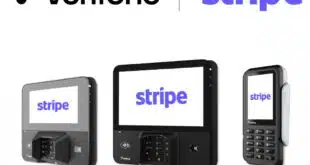In a move that expands its business as a provider of risk-control services for merchants and card issuers, Visa Inc. announced Thursday that it has a deal to acquire e-commerce payment-authentication provider CardinalCommerce Corp.
Founded in 1999, Mentor, Ohio-based CardinalCommerce’s signature product is Cardinal Secure Authentication, a service that uses data from devices, merchants, and issuers to determine if an online purchaser is making a legitimate transaction. Visa’s CyberSource e-commerce risk-control subsidiary has been offering CardinalCommerce services to its merchants and merchant acquirers for years.
The deal, whose terms were not disclosed, comes shortly after chip card standards body EMVCo, of which Visa is a co-owner, unveiled its long-awaited retrofit of the e-commerce authentication technology known as 3-D Secure. CardinalCommerce uses 3-D Secure, though it relies mostly on its proprietary technology.
Visa, which developed the original 3-D Secure technology and licensed it to other networks, sees the new version 2.0 of 3-D Secure and CardinalCommerce’s services as a winning combination. Mark Nelsen, Visa senior vice president of risk and authentication products, says there are hundreds of providers of 3-D Secure globally, but CardinalCommerce’s “optimization” of e-commerce authentication is the most compelling service out there for merchants and issuers.
“We really thought the Cardinal technology provided the best of both worlds,” Nelsen tells Digital Transactions News.
The companies would not disclose how the deal came together. But Tim Sherwin, one of Cardinal’s three co-founders along with Mike Keresman and Chandra Balasubramanian, says Visa and Cardinal “have a long history of working together. We thought the timing was right.”
Keresman, Cardinal’s chief executive, adds that Visa’s global reach will expand the provision of his company’s products internationally. “Visa gets to take us wherever you want to be,” he quips.
Security-technology analyst Julie Conroy, research director at Boston-based Aite Group LLC, says the introduction of 3-D Secure 2.0, as well as the migration of card fraud to online channels now that EMV chip cards are slashing counterfeit fraud at the point of sale, makes now a good time for Visa to buy an online fraud-control specialist like CardinalCommerce.
“With where we are with 3-D Secure adoption, Cardinal is probably worth more now than at any time in its history, so it’s a great time to exit,” she says. “[And] from Visa’s perspective, EMV will spell an uptick in card-not-present fraud.”
Visa also will be getting a risk-control system that Cardinal claims approves many legitimate transactions that other providers would reject. Various studies have said these so-called false declines, which an Aite study estimates will cost the industry $260 billion in 2016, far exceed actual fraud losses.
“What Cardinal has been doing [to address the problem] is to enhance communications between issuers and merchants,” says Conroy. “And there’s a lot you can do to amp up those efforts with another 14,000 people behind it,” she says in reference to Visa’s employee count.
CardinalCommerce and its 150 employees will remain in Mentor as a wholly owned subsidiary of Visa under the leadership of Sherwin and Balasubramanian. It was not immediately clear what Keresman’s role will be once the deal closes.





